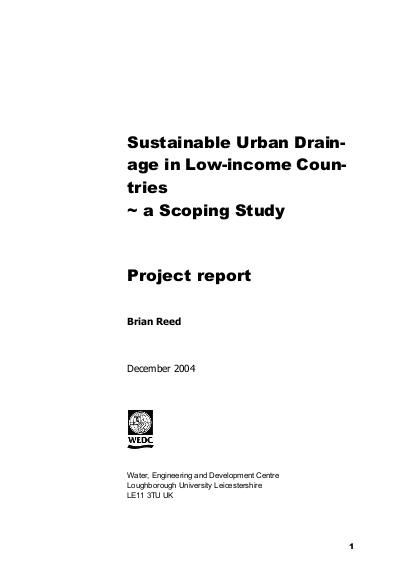Project Report

This short research project looked at the scope for using “Sustainable Urban Drainage Systems” (SUDS) in low-income countries. Poorly managed urban drainage has many impacts on the lives of urban residents, especially the poor who are living in areas prone to flooding, water pollution or landslides. SUDS have been developed in a variety of countries, most notably the USA, Australia and now the UK. They take an holistic approach to drainage design and management.
Conventional drainage systems aim to remove water from the built-up area as rapidly as possible, transferring flooding and pollution downstream. They have detrimental impacts on water resources and the wider environment. In lowincome countries, channels are often used instead of pipes, but the same design philosophy is used. The use of piped sewerage is now recognised as inappropriate for excreta disposal in many locations of the developing world, but an urban drainage equivalent of the pit latrine and septic tank has not been developed or promoted. This project aimed to see if SUDS could fill this gap.
Resource collections
- Innovation
- UN Habitat - Urban Response Collection
- Urban Response - Urban Crisis Preparedness and Risk Reduction
- Urban Response Collection - Community Engagement and Social Cohesion
- Urban Response Collection - Economic Recovery
- Urban Response Collection - Environment and Climate Change
- Urban Response Collection - Housing, Land and Property
- Urban Response Collection - Urban Crisis Response, Recovery and Reconstruction
- Urban Response Collection - Urban Resilience